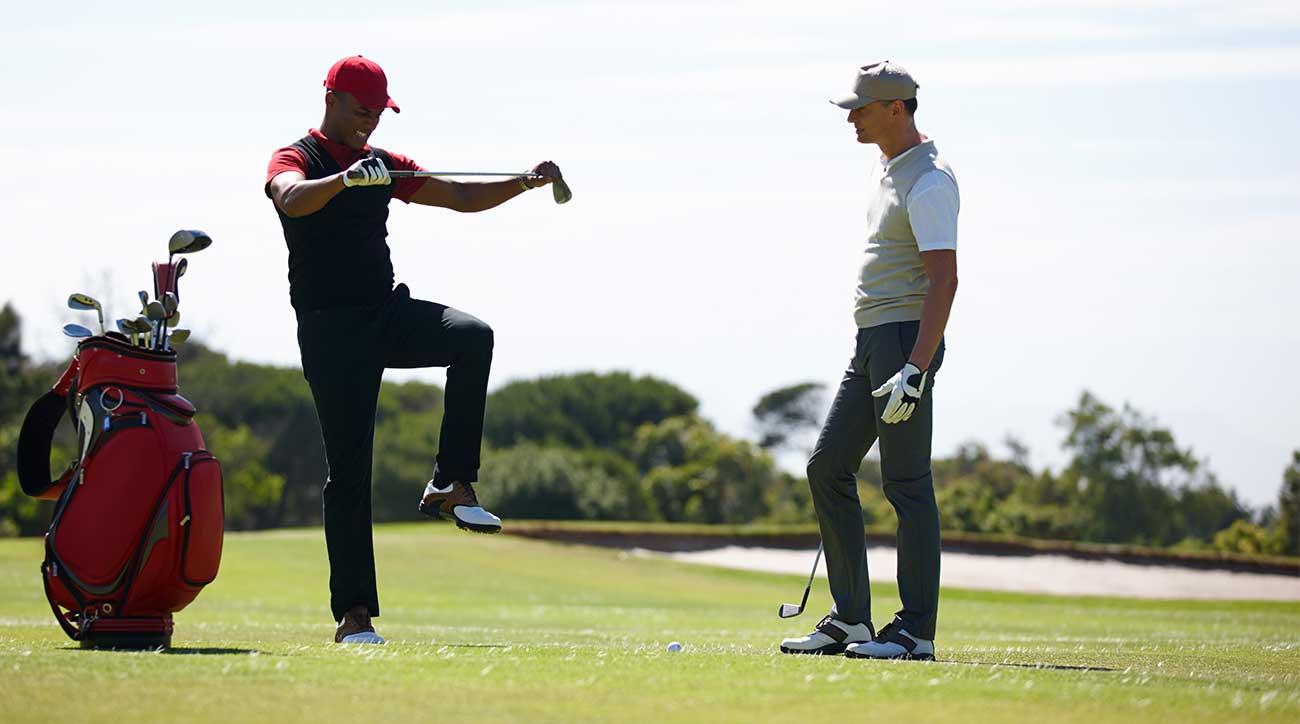 2026 Cognizant Classic Sunday tee times: Final-round groupings
2026 Cognizant Classic Sunday tee times: Final-round groupings
The Etiquetteist: How to manage a hot-headed playing partner

Golf is a game of honor. It is also a game of histrionics. Players get emotional. They stomp and they pout. They fling clubs and drop F-bombs. They thrash greens and trash bunkers (see: Garcia, Sergio).
In tournament play, clear options exist for handling conduct unbecoming (see: DQ’s and fines).
But in casual rounds, matters can get muddy.
What to do when you’re out there to have fun and your playing partner goes full Baby Huey? How should you handle their hissy fit?
“The first thing you should be thinking about is protecting your own state of mind,” says Joe Parent, a noted mental-game coach and author of such books as Zen Golf: Mastering the Mental Game and A Walk in the Wood: Meditations on Mindfulness with a Bear Named Pooh. The latter manual is intended for children, which is fitting, given many adults turn into toddlers on the course the instant their games goes awry.
If you’re playing at a private club and your host proves him- or herself to be a hot-headed ninny, there’s not much you can do other than stay mum and give wide berth (if things get really ugly, you might consider leaving, but at that point, you’ll probably want to stick around for morbid curiosity). When the roles are reversed, and you’re the host, allow for no such leeway.
“That’s not okay here,” you might note, as if addressing an obnoxious kid in the playground. Depending on the nastiness of your guest’s behavior, you might simply tell him that it’s time for him to leave (unless the tantrum-thrower is your boss, in which case, you’re in for a long day).
ADVERTISEMENT
On a public course, the dynamics can be different. If you’re paired with a stranger who has gone ballistic, the same rule holds as in road-rage incidents: steer clear and stay quiet.
“At that point,” Parent says, “any comment you make will be kerosene.”
If the flames of rage keep burning, you’ve got a few less-than ideal options, which still might be better than suffering through the round. You can pick up and leave the golf course. Or drop back, with the hope of joining the group behind you. Assuming that they’re golfers of sound mind and soft heart, they’ll take pity on your plight and let you play in (if you’re now a fivesome, you’ll need to do some more explaining to the marshal, who should also understand).
Again, not ideal.
But, Parent says, “You’re really just trying to make the best of an imperfect situation.”
If you’re playing with a friend who goes volcanic, you might try on-course interference — a kindly arm around the shoulder, a reassuring word — but in the heat of the moment, don’t count on being heard.
You’ll have more success after the round, over a cocktail in the clubhouse. With a buddy, it’s fair game to be blunt. As in, “Dude, was that fun for you? Because it really wasn’t fun for me,” Parent offers.
But a gentle ribbing will likely get better results.
Like, for instance, “I’m sorry I was out there playing golf while you were trying to have a tantrum.”
If they can’t see the humor, time to find another playing partner, maybe even another friend.
To receive GOLF’s all-new newsletters, subscribe for free here.
ADVERTISEMENT






